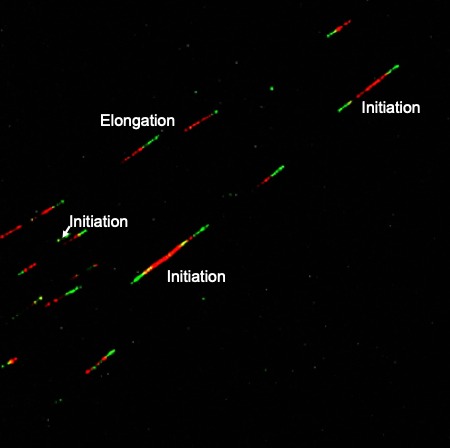Investigating the mechanisms underlying DNA replication, DNA damage, and DNA recombination under complex chromatin environments and their impact on genome stability and tumorigenesis.
Cells are the basic units of living organisms, each serving as a complex and intricate ecosystem, maintaining balance both internally and externally. Internally, cells possess complicated subcellular structures, with the nucleus serving as the container for genetic materials, characterized by a complex chromatin environment including hierarchic chromatin structures, multiple DNA metabolism activities, and epigenetic information. Externally, cell-cell communications are crucial for sustaining biological systems. While extensive research has been conducted on cell-cell communications with the immune and nervous systems, our current understanding is still limited. The immune system has a class of highly specific molecules - B cell receptors and T cell receptors, with the former secreted as antibodies. With rapid advancements in research technologies and the continuous accumulation of scientific data, the focus of research is gradually shifting from lower model organisms to humans themselves, with research becoming more systematic. In our laboratory, we primarily study immune cells from mice and humans, focusing on:

Investigating the mechanisms underlying DNA replication, DNA damage, and DNA recombination under complex chromatin environments and their impact on genome stability and tumorigenesis.

Exploring changes in lymphocyte function and associated DNA metabolism changes over time and across different tissues, at temporal and spatial scales, during the aging process.
Our laboratory is well-established for self-motivated young scientists. We warmly welcome you to join us and build a positive, innovative, and active young team together. Our lab will make every effort to create opportunities for each participant to develop their talents and realize their aspirations.























